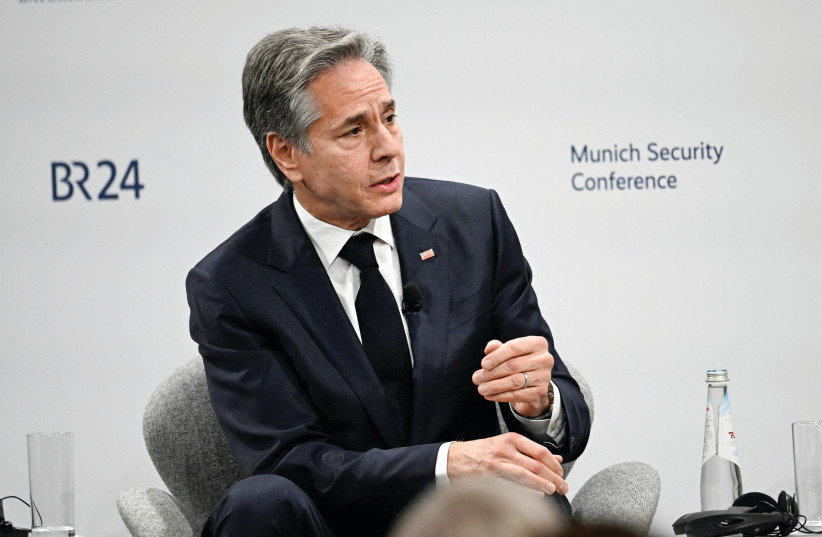Israel's plan to add thousands more homes to settlements in the West Bank announced last week was the final push the Biden administration needed to declare them "inconsistent" with international law, sources and US officials familiar with the move told Reuters.
Rather than the carefully choreographed policy rollout typical in Washington, US Secretary of State Antony Blinken made the reversal in response to a question at a news conference in the Argentinian capital Buenos Aires.
"It’s been longstanding US policy under Republican and Democratic administrations alike that new settlements are counter-productive to reaching an enduring peace,” Blinken told reporters.
"They’re also inconsistent with international law."
The policy shift was a long time in the making but the final decision came together within hours, catching many by surprise and raising questions about why this moment was chosen to return to what had been the US stance for four decades until it was changed by the previous administration of Donald Trump.

Just 24 hours before, there were no plans for Blinken to make such an announcement on Friday at the scheduled news conference, sources said.
But after far-right Finance Minister Bezalel Smotrich said Israel's government had agreed plans to approve some 3,300 new homes to be built in settlements, in response to a deadly Palestinian shooting attack in the West Bank, US officials concluded the time was right to unveil the shift in the language.
"This was something the administration had certainly been considering for a length of time and recent events made it clear that now was the time to articulate that," one US official familiar with the decision said.
Israel vows "to continue momentum"
The influential leader of one of the hard-right parties in Israeli Prime Minister Benjamin Netanyahu's coalition government, Smotrich himself lives in a West Bank settlement.
Late on Tuesday, he doubled down with a pledge to continue expanding the settlements, announcing the approval of a new settlement called Mishmar Yehuda in Gush Etzion, south of Jerusalem, and saying work would continue to authorize more.
"We will continue the momentum of settlement throughout the country," Smotrich said in a statement.
The policy change brought the US back in line with most of the world, which considers the settlements built on territory Israel captured in the 1967 Middle East war to be illegal. Israel itself disputes this view, citing the Jewish people's historical and Biblical ties to the land.
Since taking office in January 2021, the Biden administration has come close a few times to restoring the language to the pre-Trump era, but each time the move was set aside largely due to a failure to secure a green light from all of the senior members of the administration, sources said.
The October 7 Hamas attack that killed 1,200 Israelis, saw more than 250 others taken hostage and triggered a deadly Israeli military campaign had temporarily halted plans for such a change, even though internal discussions on the issue continued, according to officials.
"Barrier to peace"
The decision to make the change now underscores the Biden administration's growing frustration with Netanyahu. The Israeli leader is increasingly at odds with his biggest backer US President Joe Biden on a host of issues over the Israel-Hamas conflict.
Despite US pressure against reoccupying Gaza, Netanyahu has repeatedly said Israel will maintain security over the densely populated enclave once the war ends. He has also refused to embrace a peace deal that envisages Israeli and Palestinian states side by side.
Washington has repeatedly warned Israeli officials that settlement expansion is an obstacle to peace and that Israel must act to stop violence by settlers against Palestinians in the West Bank.
It recently imposed sanctions on four Israeli men accused of being involved in settler violence.
The Palestinian foreign ministry condemned last week's Israeli settlement announcement, saying it undermined the chances of a two-state solution.
The Israeli advocacy group Peace Now, which monitors settlement expansion, said last month that there had been an unprecedented surge in settlement activities since the start of the Gaza war in October.
"From a policy point of view, we have always been clear that we believe settlements are a barrier to peace and that they weaken, not strengthen, Israel’s security," State Department spokesperson Matthew Miller said on Monday, when asked why it took the administration three years to make the change.
"As a legal question, it is something that had been under review here at the department for some time," Miller said. He declined to say when the review began.
